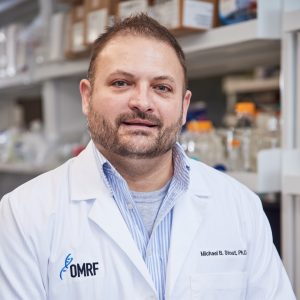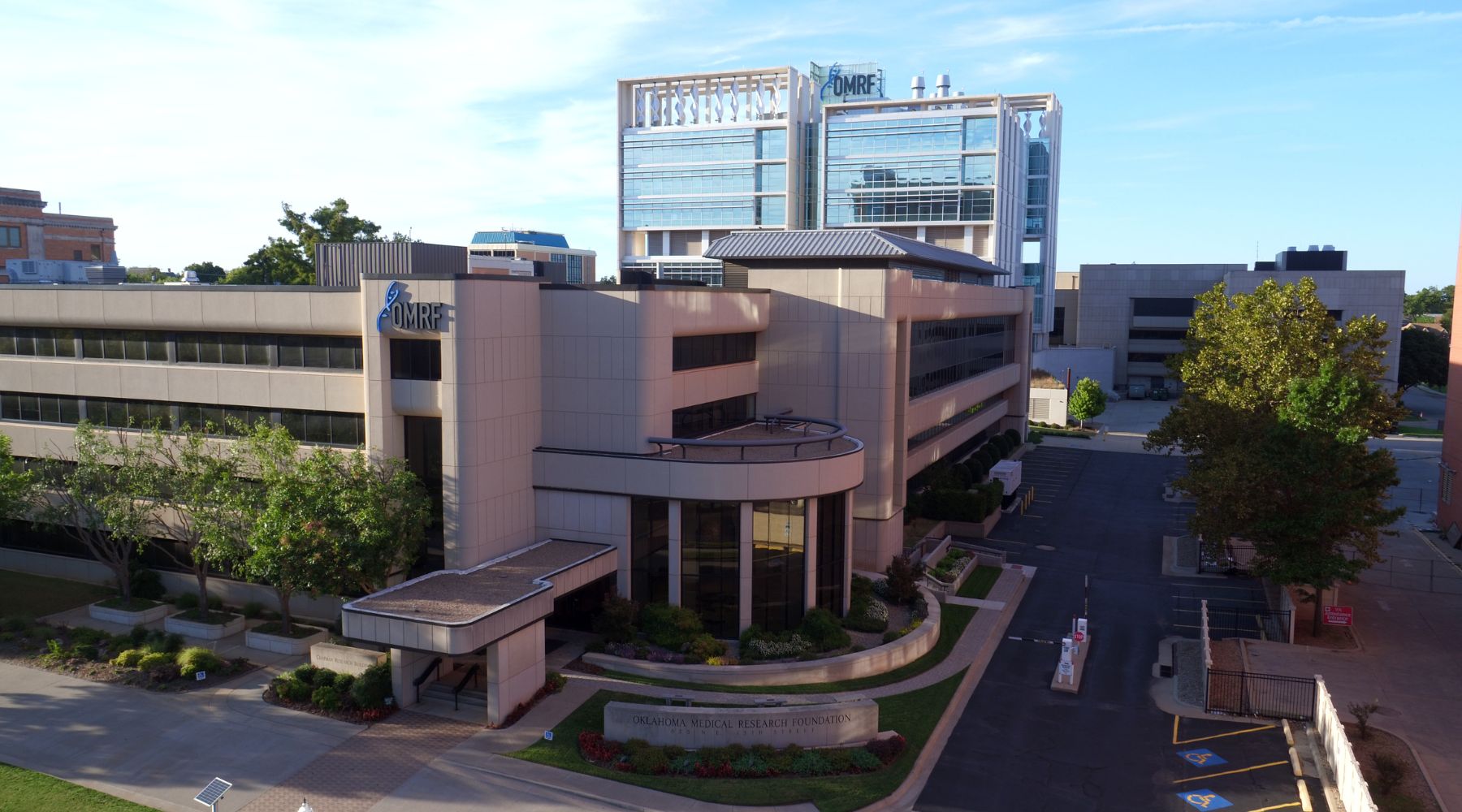Two Oklahoma Medical Research Foundation scientists are among 28 internationally to receive grants announced Wednesday by the Global Consortium for Reproductive Longevity & Equality (GCRLE).
Research by OMRF scientists Sarah Ocañas, Ph.D., and Michael Stout, Ph.D., will take separate approaches toward a goal of delaying menopause. Accomplishing that feat would extend a woman’s reproductive years as well as her overall period of good health, as the risk of chronic disease accelerates rapidly after menopause.
Ocañas received a two-year, $500,000 Junior Scholar Award from the GCRLE. Stout received a two-year, $800,000 Senior Scholar Award.

The GCRLE is an initiative to tackle female reproductive aging. The California-based Buck Institute launched the consortium in partnership with the Bia-Echo Foundation in 2019.
Ocañas’ lab focuses on how neuroinflammation and disorders such as Alzheimer’s disease manifest differently between men and women. Of particular interest to her is whether changes in a woman’s hormones after menopause are connected to the onset of Alzheimer’s, which is more prevalent and more severe in women.
With the grant, Ocañas will study an early sign of ovarian failure – inflammation – which normally begins when a woman reaches her mid-30s.
“That’s when reproductive success begins to decline rapidly, but it’s another 15 years or so until menopause begins,” she said. “So, we will look at how inflammation affects the lifespan of ovaries and whether that accelerated aging in the ovaries, marked by decreasing estrogen production, sends an inflammatory signal to the brain.”

Stout’s research underscores that reproductive cells in women do not regenerate.
Females are born with the pool of eggs, called primordial follicles, that she will have for her reproductive life, Stout said. As a woman ages, some will develop, while others remain dormant or deteriorate. Once the pool of primordial follicles is exhausted, the ovaries stop producing estrogen, which indicates the transition to menopause.
“Recent studies have shown that it’s possible to slow down ovarian aging, but we don’t know why this happens,” said Stout. “We also know very little about which cells in the ovaries age the fastest and whether a certain cell type plays a major role in causing ovarian failure.”
Stout will study the impact of a protein complex called mTORC1 in a particular group of ovarian cells and how this may promote ovarian declines. While mTORC1 plays a significant role in cell division, wound healing and inflammatory responses, its role in age-related ovarian failure is unknown.
Ocañas and Stout hope their research could lead to new treatments that extend the period of healthy ovarian function.
“We are thrilled to support groundbreaking scientific research that will change the narrative around reproductive longevity and reveal the key factors that contribute to ovarian aging, ultimately extending the overall health and well-being of women,” said GCRLE Co-Founder and Director Jennifer Garrison. “Our mission goes beyond addressing fertility and menopause; it’s about equality.”



